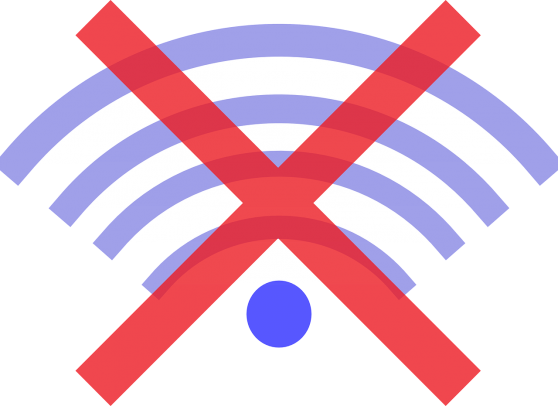Life offline
 I was in disbelief upon boarding my flight to Paris from Chicago. The outdated American Airlines plane didn’t offer wifi, nor did it have outlets, which meant my internet-less phone was going to die within the first hour of my eight-hour trip. For a few hours on the plane, I, quite literally, did not know what to do with myself and was reminded of the extent to which I rely on the Internet for constant stimulation. I felt lost and absolutely pathetic. I ended up surviving the ordeal, but during my journey I was presented with the thought provoking question, how would my life be different without the Internet?
I was in disbelief upon boarding my flight to Paris from Chicago. The outdated American Airlines plane didn’t offer wifi, nor did it have outlets, which meant my internet-less phone was going to die within the first hour of my eight-hour trip. For a few hours on the plane, I, quite literally, did not know what to do with myself and was reminded of the extent to which I rely on the Internet for constant stimulation. I felt lost and absolutely pathetic. I ended up surviving the ordeal, but during my journey I was presented with the thought provoking question, how would my life be different without the Internet?
At first, I felt the absence of entertainment and social media the most. As someone who sends and receives an ungodly amount of texts each day, I felt anxious at the thought of not being able to reach my friends and family at any given moment. There is comfort in the idea that no matter where you are you can text your best friend or update yourself on the election; however, once it was no longer available to me, slowly, it no longer felt necessary. It’s undeniable that Internet access promotes social activity and research, yet once my access was revoked I began having actual human interaction with a fellow passenger, an exchange that otherwise wouldn’t have occurred. I was confronted with the fact that I miss making natural human connections by being overly preoccupied with social media. As I sat there speaking to my neighbor I thought about all of the people I didn’t get to meet because I always have the Internet in my hand.
However, this removal of tabloid news and iMessage would also mean the removal of vital news and information. I could just picture myself trekking through Chicago’s harsh winter to the library in order to read an article I could find in 0.5 seconds online. I smile thinking about how ridiculous that must sound, both to millennials as well as adults who have lived through it, but it highlights how the Internet has made us more efficient humans, and possibly even smarter. Without the Internet, the possibility of researching a newly discovered topic or binging on documentaries is lost, which means our ability to learn outside of the classroom is greatly minimized. I could spend hours learning about the school to prison pipeline in Detroit without spending a dime or leaving my room, which is a learning tool and privilege that an offline world would rob me of.
As I continued my inner monologue on life sans the Internet, I thought of my older sister. My sister Lauren was born deaf and lived in varying cities for as long as I can remember. She ended up settling down in New York, however, thanks to the Internet I see her almost every day. Yet, prior to the Internet and smartphones, Lauren and I would see each other about twice a year, with all other communication being through an interpreter. Lauren had a program that enabled her to sign to an interpreter, with the interpreter relaying the message back to me. It was an incredibly invasive way to have a conversation with my sibling and limited our subject matter greatly. Just imagine a complete stranger being on the other line with you and your sibling, every time. The widespread usage of the Internet liberated the deaf community, including my sister and me. Today I can speak to her and my two deaf nephews quickly, privately, and uninterruptedly, and I owe that all to the Internet.
 Lucy Teruel is a junior majoring in communications and minoring in political science. Born and raised on the North Side of Chicago, Lucy loves music, French, shopping, going to the gym and traveling. She’s also an avid sports fan with a particular penchant for the Chicago Cubs. She hopes to one day become a sportscaster, so don’t be surprised if you catch her on the nightly news a few years from now.
Lucy Teruel is a junior majoring in communications and minoring in political science. Born and raised on the North Side of Chicago, Lucy loves music, French, shopping, going to the gym and traveling. She’s also an avid sports fan with a particular penchant for the Chicago Cubs. She hopes to one day become a sportscaster, so don’t be surprised if you catch her on the nightly news a few years from now.
